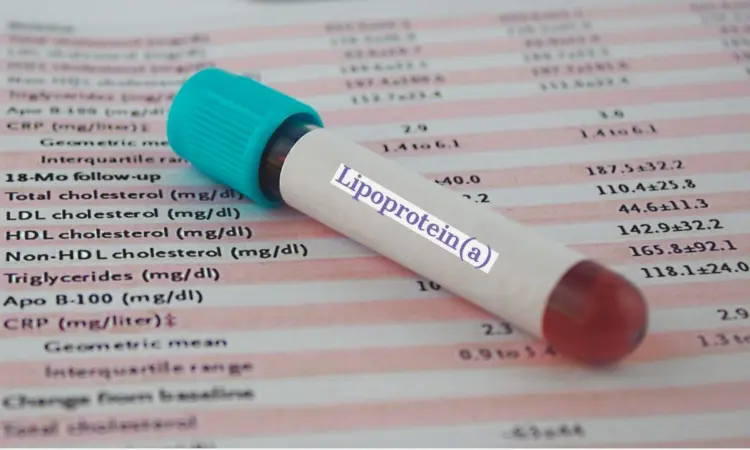- Home
- Medical news & Guidelines
- Anesthesiology
- Cardiology and CTVS
- Critical Care
- Dentistry
- Dermatology
- Diabetes and Endocrinology
- ENT
- Gastroenterology
- Medicine
- Nephrology
- Neurology
- Obstretics-Gynaecology
- Oncology
- Ophthalmology
- Orthopaedics
- Pediatrics-Neonatology
- Psychiatry
- Pulmonology
- Radiology
- Surgery
- Urology
- Laboratory Medicine
- Diet
- Nursing
- Paramedical
- Physiotherapy
- Health news
- Fact Check
- Bone Health Fact Check
- Brain Health Fact Check
- Cancer Related Fact Check
- Child Care Fact Check
- Dental and oral health fact check
- Diabetes and metabolic health fact check
- Diet and Nutrition Fact Check
- Eye and ENT Care Fact Check
- Fitness fact check
- Gut health fact check
- Heart health fact check
- Kidney health fact check
- Medical education fact check
- Men's health fact check
- Respiratory fact check
- Skin and hair care fact check
- Vaccine and Immunization fact check
- Women's health fact check
- AYUSH
- State News
- Andaman and Nicobar Islands
- Andhra Pradesh
- Arunachal Pradesh
- Assam
- Bihar
- Chandigarh
- Chattisgarh
- Dadra and Nagar Haveli
- Daman and Diu
- Delhi
- Goa
- Gujarat
- Haryana
- Himachal Pradesh
- Jammu & Kashmir
- Jharkhand
- Karnataka
- Kerala
- Ladakh
- Lakshadweep
- Madhya Pradesh
- Maharashtra
- Manipur
- Meghalaya
- Mizoram
- Nagaland
- Odisha
- Puducherry
- Punjab
- Rajasthan
- Sikkim
- Tamil Nadu
- Telangana
- Tripura
- Uttar Pradesh
- Uttrakhand
- West Bengal
- Medical Education
- Industry
Lipoprotein(a) and oxidized phospholipids linked to increased symptomatic heart failure: CASABLANCA Study

USA: In a groundbreaking development in cardiovascular research, the findings of the CASABLANCA study shed new light on the intricate interplay between lipoprotein(a) [Lp(a)], oxidized phospholipids, and the progression to symptomatic heart failure. The study underscores the significance of these biomarkers in predicting heart failure progression and opens avenues for targeted therapeutic interventions.
The study, published in the Journal of the American Heart Association, revealed higher lipoprotein(a) and oxidized phospholipid concentrations to be independent risk factors for progression to symptomatic heart failure (HF) or cardiovascular death among individuals with stage A or B HF.
Heart failure remains a major public health concern globally, with substantial morbidity, mortality, and healthcare costs associated with this condition. Despite advances in treatment and management, identifying individuals at risk of developing symptomatic heart failure remains a challenge.
Higher Lp (a) and oxidized phospholipid concentrations are linked with increased coronary artery disease (CAD) and valvular heart disease risk. The role of lipoprotein(a) or oxidized phospholipid as a risk factor for incident HF or its complications remains uncertain. Considering this, James L. JanuzziJr, Division of Cardiology, Massachusetts General Hospital, Harvard Medical School, Boston, MA, and colleagues aimed to investigate the relationship between Lp (a), OxPLs, and the risk of progression to symptomatic stages of HF among individuals with stage A/B HF referred for coronary angiography.
The study included 1251 individuals referred for coronary angiography in the CASABLANCA study. They were stratified based on the universal definition of HF stage; those in stage A/B (N=714) were followed up for an average of 3.7 years for incident stage C/D HF or the composite of HF/cardiovascular death.
The following were the key findings of the study:
- During follow‐up, 14.7% of study participants in stage A/B progressed to symptomatic HF, and 8.0% had cardiovascular death.
- In models adjusted for multiple HF risk factors, including severe coronary artery disease and aortic stenosis, individuals with lipoprotein(a) ≥150 nmol/L were at higher risk for progression to symptomatic HF (hazard ratio [HR], 1.90) or the composite of HF/cardiovascular death (HR, 1.71).
- These results remained significant after further adjustment of the model to include prior myocardial infarction (HF: HR, 1.89; HF/cardiovascular death: HR, 1.68).
- Elevated oxidized phospholipid concentrations were similarly associated with risk, particularly when added to higher lipoprotein(a).
- In Kaplan‐Meier analyses, individuals with stage A/B HF and elevated lipoprotein(a) had a shorter time to progression to stage C/D HF or HF/cardiovascular death.
These findings suggest an independent role for lipoprotein(a) and related OxPLs in causing heart damage leading to HF.
"Whether lipoprotein(a) concentrations lowering might be expected to avert progression to symptomatic HF or its complications requires further study, including clinical trials of lipoprotein(a) lowering in trials assessing HF outcomes," the researchers concluded.
Reference:
Januzzi JL Jr, van Kimmenade RRJ, Liu Y, Hu X, Browne A, Plutzky J, Tsimikas S, Blankstein R, Natarajan P. Lipoprotein(a), Oxidized Phospholipids, and Progression to Symptomatic Heart Failure: The CASABLANCA Study. J Am Heart Assoc. 2024 Jun 11:e034774. doi: 10.1161/JAHA.124.034774. Epub ahead of print. PMID: 38860394.
Dr Kamal Kant Kohli-MBBS, DTCD- a chest specialist with more than 30 years of practice and a flair for writing clinical articles, Dr Kamal Kant Kohli joined Medical Dialogues as a Chief Editor of Medical News. Besides writing articles, as an editor, he proofreads and verifies all the medical content published on Medical Dialogues including those coming from journals, studies,medical conferences,guidelines etc. Email: drkohli@medicaldialogues.in. Contact no. 011-43720751


